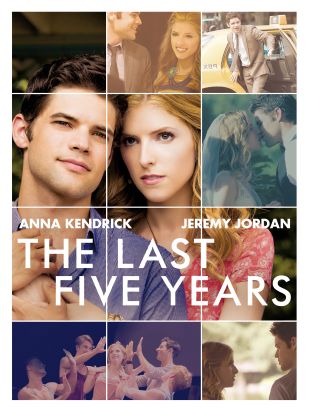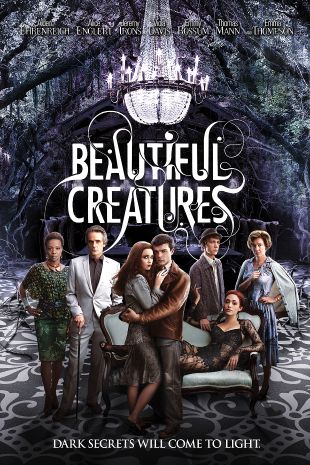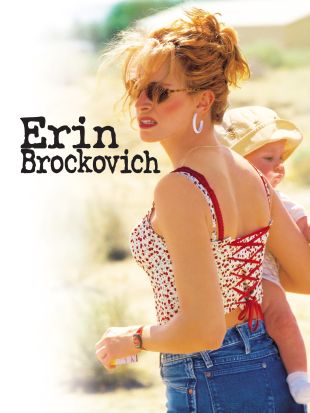A prolific scenarist long associated with sensitive women's films (Unstrung Heroes, A Little Princess, The Bridges of Madison County, The Mirror Has Two Faces), Richard LaGravenese cultivated a reputation for himself as the author of poignant, funny, and humanistic screenplays that gently touch the viewer's emotions without manipulating them.
A Big Apple native born October 30, 1959, LaGravenese came of age in Brooklyn and studied acting at New York University's experimental theater wing at the Tisch School for the Arts. As a student, he honed his skills with dialogue and formed a New York- and Toronto-based comedy troupe, for which he also wrote sketches. After a disastrous turn on the icky 1989 generation gap "comedy" Rude Awakening, starring Cheech Marin and Louise Lasser, LaGravenese supplemented his (unrelated) day job by working on the script for what became The Fisher King (1991) -- a project reflecting his lifelong fascination with mythology. Directed by Terry Gilliam (who shares La Gravenese's passion for antiquated Arthurial legends and myth), King debuted during the Christmas season of 1991 and became an instant runaway hit and Academy contender. This most unusual picture stars Jeff Bridges as long-haired Jack Lucas, a suicidal New York DJ who regains his grasp on life after meeting Parry, an ostensibly insane homeless man (Robin Williams) obsessed with questing for The Holy Grail in midtown Manhattan. At the 64th Annual Academy Awards, the 32-year-old LaGravenese netted an Oscar nomination for his original screenplay (Best Screenplay Written Directly for the Screen), though he lost to Callie Khouri for Thelma & Louise.
The Ref (1994) brought together LaGravenese and the late Ted Demme, with whom he would collaborate once more before Demme's 2002 death. An unofficial update of O. Henry's "The Ransom of Red Chief," uncharacteristically produced by Don Simpson and Jerry Bruckheimer (of all people), this rollicking farce casts acid-tongued Denis Leary as a cat burglar who inherits more trouble than he ever could have dreamed of, when he takes a couple with a volcanic relationship (Kevin Spacey and Judy Davis) hostage. The Ref premiered in March 1994, grossed dollar one, and attained a strong cult following as well.
LaGravenese courted additional acclaim with his screenplays for his popular 1995 adaptation of Frances Hodgson Burnett's A Little Princess and that same year's Bridges of Madison County, adapted from the Robert James Waller novel, directed by Clint Eastwood, and starring Eastwood and Meryl Streep. La Gravenese then adapted sportswriter Franz Lidz's childhood autobiography into the intelligent coming-of-age drama Unstrung Heroes (1995), which also marked Diane Keaton's directorial debut. When it debuted in fall 1995, the film received outstanding write-ups and became a sleeper hit in ancillary markets, though the preponderance of critics gave sole credit for the film's charm to Keaton (the San Francisco Chronicle review began with the headline "Keaton Has the Right Touch,") and failed to acknowledge the pivotal role of the well-crafted screenplay in making the film soar.
At around the same time, LaGravenese updated André Cayatte and Jean Meckert's screenplay for the 1958 Le Miroir à deux faces into a finely-wrought, contemporized romantic drama, The Mirror Has Two Faces, which Barbra Streisand produced through her Barwood company and helmed in early-mid 1996. This picture -- the story of a dowdy, unconfident English professor (Streisand) who enters into an experimental "sexless marriage" with a handsome but erotically stilted math professor (Jeff Bridges) and shockingly reinvents herself -- also became a runaway sleeper hit, especially among romantics.
Living Out Loud (1998), a romantic comedy drama starring Holly Hunter, Danny DeVito, and Queen Latifah, marked LaGravenese's directorial debut. Another tale of mid-life loneliness and self-acceptance, or, in the words of the scripter himself, "people who are trying to find their place in the world," this script pulled inspiration from two plays by Anton Chekhov. The film marked an enormous critical success -- and hailed by one critic as "a romantic comedy for grown-ups." That effort's 1998 release marked only one endeavor amid a very productive year for La Gravenese, as two other films he had adapted for the screen, Toni Morrison's Beloved, directed by Jonathan Demme, and Nicholas Evans' The Horse Whisperer, directed by Robert Redford, were released around the same time. In 2000, LaGravenese added another plume to his increasingly crowded cap, this time as the uncredited script reviser for Steven Soderbergh's wildly popular Erin Brockovich, written by Susannah Grant.
In 2001, LaGravenese and Ted Demme joined forces for the production of A Decade Under the Influence. This stunning, three-hour panoramic tour through Hollywood's "sex, drugs and rock & roll era" marked the documentary equivalent of (or, if you like, an unofficial companion piece to) Peter Biskind's enthralling 1998 bestseller Easy Riders, Raging Bulls and intercuts one-on-one discussions with Hollywood's finest (Coppola, Scorsese, Bogdanovich, Altman) with clips from the legendary American films of the '70s -- everything from Taxi Driver to Heaven's Gate. The final product -- handled by IFC Films -- suffered just a bit from the absence of several notables (Robert Evans, Steven Spielberg, George Lucas, Michael Cimino, Warren Beatty, Woody Allen) but nonetheless received generally enthusiastic notices when it played to limited bookings upon release in early 2003. Its directorial co-credit, however ("A Film by Richard LaGravenese and Ted Demme") obfuscated a much greater tragedy (and a sick irony, given the film's fascination with Hollywood's drug era) that belied its existence: one year before the documentary's release, with the film still in production, Demme died of a cocaine overdose.
Understandably shaken by Demme's passing, LaGravenese officially took a couple of years off after their joint project, but used the time to author the script Freedom Writers. This screenplay revisits thematic territory covered previously by Stand and Deliver and Dangerous Minds, in its story of a determined teacher Hilary Swank who vows to teach her tough-as-nails students compassion and tolerance by introducing them to The Diary of Anne Frank and Zlata's Diary: A Child's Life in Sarajevo. La Gravenese assumed directorial duties as well, and Paramount slated the picture for release in January 2007. He also doubles up as director and screenwriter on that same year's P.S. I Love You. Adapted from the novel by Cecelia Ahern, the picture dramatizes the story of a widow who discovers ten notes left behind by her deceased husband.
Meanwhile, LaGravenese adapted and contemporized "The Secret Life of Walter Mitty," the classic James Thurber story about a milquetoast daydreamer, as a feature-length screenplay, and studio negotiations about the project continued for an extended period of time, with its exact cast and production date uncertain. The material was previously directed as a film by Norman Z. McLeod in 1947.



